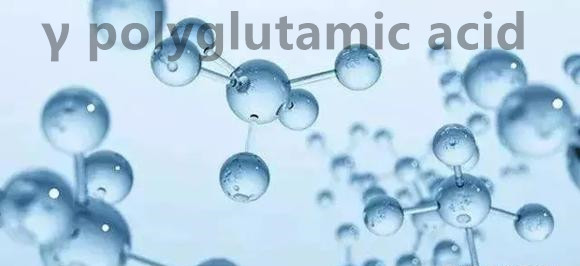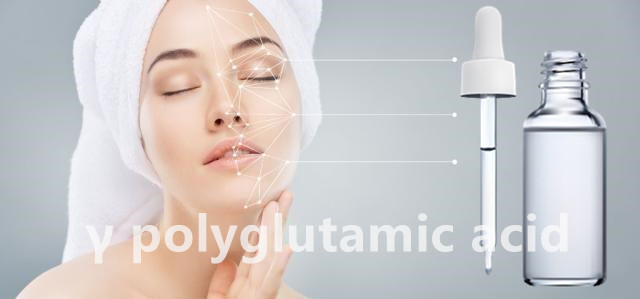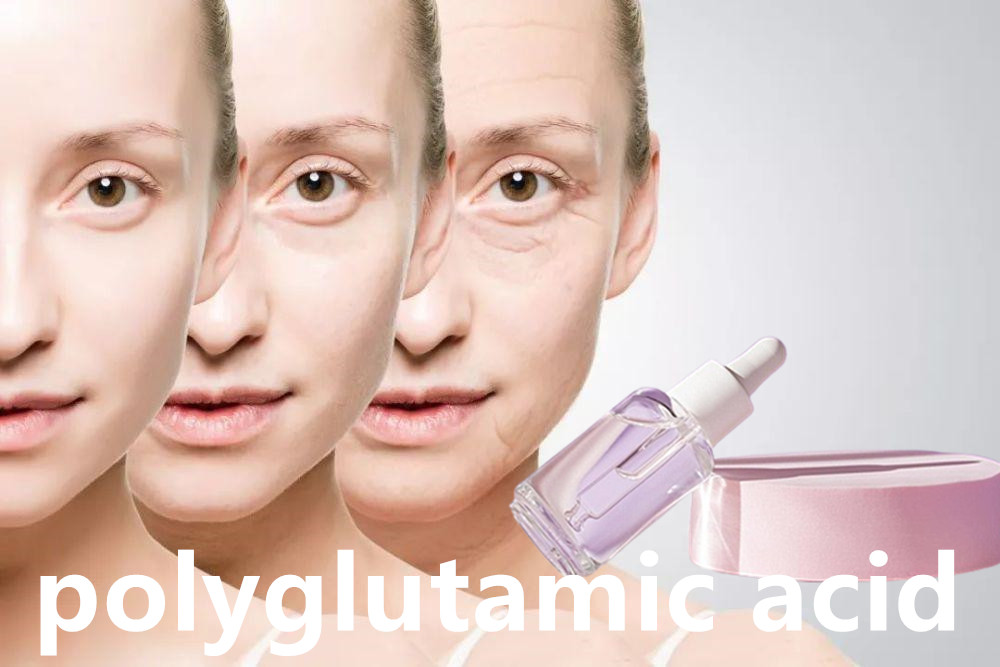Polyglutamic acid is a polymer of the amino acid glutamic acid. It’s made via bacterial fermentation using various types of skin-friendly Bacillus, a type of bacteria (8). If you’re a fan of Japanese food, you might be familiar with a sticky fermented soybean dish called natto. Natto is one of the culinary sources of polyglutamic acid, which is a byproduct of the soybean fermentation process .

In addition to appearing in foods such as natto, polyglutamic acid (also known as PGA) can be synthesized in a lab, which is where most of the polyglutamic acid used in skin care products originates. In this manner, the purity and efficacy of polyglutamic acid is assured.
Polyglutamic acid is a polypeptide that enhances water-solubility and is environmentally friendly. It has been considered as a vehicle for transepidermal delivery of other active ingredients and has excelled in moisturizing the skin for those of all skin types from sensitive to dry to oily. It functions mostly as a humectant like alpha hydroxy acids, urea, panthenol and hyaluronic acid.
Polyglutamic acid benefits

The primary benefit of polyglutamic acid is its impressive ability to hydrate skin. Because it’s a polymer, it forms a flexible, smooth, moisture-binding film on skin’s surface. This film helps skin keep moisture in its surface layers, even in conditions of low humidity, making polyglutamic acid an effective humectant. The plumping effect helps skin take on a more youthful appearance – and who doesn’t want that?
In addition to its abilities to aid skin in moisture retention, polyglutamic acid soothes and helps increase the production of natural moisturizing factors (NMF) in skin, which contributes to having a healthier barrier and balanced hydration.
Polyglutamic acid hydrates skin but also performs other roles as well including wrinkle reduction, balancing the effects of chronic sun exposure and enhancing wound healing.
How does polyglutamic acid compare to hyaluronic acid?
Because of its ability to help skin retain moisture, polyglutamic acid is often compared to another well-known humectant, hyaluronic acid. This comparison is certainly not off-base, as there are similarities between the two.
Like hyaluronic acid, polyglutamic acid comes in different molecular weights– some of which can penetrate skin’s upper layers for multi-level hydration and prevent water loss that can lead to dehydrated skin.
Also like hyaluronic acid, it forms what’s called a hydrogel mesh network that expands to attract and hold water. It also aids in the delivery of antioxidants, such as ferulic acid and quercetin, to skin that might otherwise prove difficult.
There are differences between polyglutamic acid and hyaluronic acid as well, mainly that polyglutamic acid does not have antioxidant properties as hyaluronic acid does (meaning it also does not have the sensitivities to light and air exposure that hyaluronic acid does). It’s also not found naturally in skin. Polyglutamic acid’s large molecular size also means it can hold four times greater hydration compared to hyaluronic acid .
So which ingredient is best when it comes to lightweight hydration for skin? The answer is that both are worthwhile and worth seeking out when you’re selecting skin care products. A skin care routine that includes both ingredients (yes, you can use polyglutamic acid and hyaluronic acid together) is best when treating dry or dehydrated skin, as anything you can do to restore moisture to skin’s barrier helps!
Polyglutamic acid’s potential benefit arises from inhibition of the breakdown of hyaluronic acid and stimulation of a strong, intact skin barrier to lock moisture into the skin, so it works hand in hand with hyaluronic acid.
Can you use polyglutamic acid every day?
Polyglutamic acid is safe to use as part of a daily skin care routine. Studies show it’s a gentle ingredient that is non-irritating. In clinical settings, it is even used as part of medical dressings designed to soothe and restore injured skin to a healthier state (3, 9, 12).

The results of using polyglutamic acid every day are smoother, less flaky skin and a plumped, hydrated appearance that will help restore skin’s youthful glow.
What skin type does polyglutamic acid work well with?
One of the most amazing things about polyglutamic acid is that it works well with all skin types, even sensitive or breakout-prone skin. Since all the molecular weights are used in low amounts, they tend to have a remarkably lightweight feel on skin – some studies have even shown it has more pleasing texture than hyaluronic acid.
Its powerhouse hydrating abilities make it a great option for those with dry, very dry, dehydrated, and combination skin – but its smooth and featherweight feel means it’s also a good choice for those with oily skin (and oily skin also needs hydration too).
What skin care ingredients can you mix with polyglutamic acid?
When it comes to mixing skin care ingredients, polyglutamic acid works well with any number of actives, including retinol, niacinamide, and vitamin C. Polyglutamic acid does not counteract any of these, and as mentioned above, because of its ability to deliver certain types of antioxidants to skin, moisturizers loaded with antioxidants + polyglutamic acid can go a long way toward making skin look and feel healthier, renewed, and more vibrant.
One final, interesting note when it comes to sustainability: polyglutamic acid has gained notoriety for its applications in other fields such as medicine, wastewater treatment, “bio-ink”, and foods. It has replaced or is being studied to replace various other ingredients that are not biodegradable, making polyglutamic acid an environmentally friendly option .

Are you familiar with the powerful skin care ingredient polyglutamic acid? This particular compound is starting to make waves in the beauty industry due to its incredible moisturizing and anti-aging properties. Aogubio, a leading company in the production and distribution of pharmacologically active substances, raw materials and botanical extracts, is proud to offer polyglutamic acid for use in skin care products.
Our company is dedicated to providing high quality nutraceuticals for supplement manufacturing, as well as products for the pharmaceutical, food, nutraceutical and cosmetic industries.
At Aogubio, we understand the importance of providing innovative and effective ingredients for our customers' skin care formulas. Our polyglutamic acid is sourced and manufactured to the highest standards to ensure its purity and potency. As a company specializing in the production of raw materials for supplements, we are committed to providing top-quality products that meet the needs of the pharmaceutical, food, nutraceutical and cosmetic industries. With polyglutamic acid, our customers can create superior, results-driven skin care products that stand out in the market.
Incorporating polyglutamic acid into skin care formulations offers numerous benefits to manufacturers and consumers. Not only does this remarkable ingredient provide superior moisturizing and anti-aging benefits, it's also lightweight, non-sticky and suitable for all skin types. Whether used in moisturizers, serums, or masks, polyglutamic acid is sure to enhance the performance of any skincare product. Aogubio is proud to be at the forefront of making this revolutionary ingredient available to customers, allowing them to create superior skin care solutions for their customers.
In summary, polyglutamic acid is a game-changing ingredient in the skincare industry, and Augu Biotech is at the forefront of supplying this innovative compound to companies in the pharmaceutical, food, nutraceutical and cosmetics industries. Polyglutamic acid has excellent moisturizing and anti-aging properties, making it an essential ingredient in innovative skin care formulas. As a company dedicated to the production and sale of high-quality raw materials and plant extracts, Aogu Bio is committed to providing top-notch products that meet customer needs. If you're looking to elevate your skin care formula, consider adding polyglutamic acid for truly exceptional results.
Post time: Jan-08-2024




